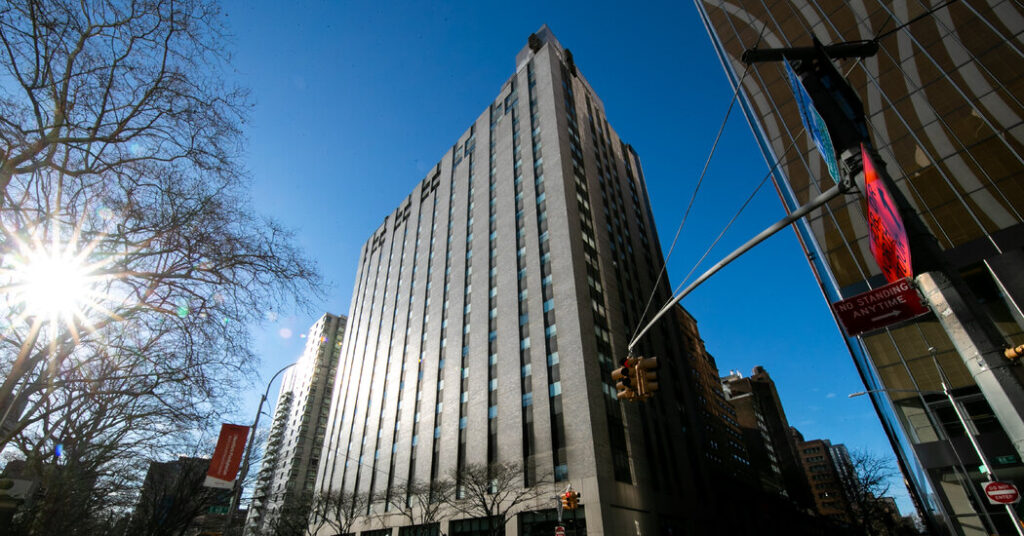When someone suffers from tumors in the stomach, esophagus, or rectum, oncologists typically have established treatment methods. Unfortunately, these methods may lead to significant reductions in quality of life, including surgeries that remove the stomach or bladder, requiring a permanent colostomy, and effects from radiation that can render patients infertile, along with long-term damage from chemotherapy.
To explore alternatives, a research team at Memorial Sloan Kettering Cancer Center trialed a different approach using a drug from GSK.
They began with 103 participants, all part of the 2 to 3 percent of cancer patients whose tumors are expected to respond to immunotherapy—medications designed to help the immune system target cancer cells.
However, in typical clinical scenarios, immunotherapy isn’t meant to replace standard treatments. Led by Dr. Luis A. Diaz Jr. and Dr. Andrea Cercek, the research team opted to administer dostarlimab, an immunotherapy agent, on its own.
The results were remarkable and could offer hope to the small group of patients facing these cancer types.
For 49 patients with rectal cancer, their tumors vanished and, five years later, have not returned. Additionally, tumors disappeared in 35 of 54 patients with various other cancer types, including those affecting the stomach, esophagus, liver, endometrium, urinary tract, and prostate.
Among all 103 patients, cancer returned in just five individuals. Three received extra immunotherapy, while one had a lymph node removed after cancer recurred there; to date, all four show no signs of the disease. The fifth patient underwent further immunotherapy that reduced their tumor’s size.
The findings were shared at the American Association for Cancer Research’s annual meeting and published in The New England Journal of Medicine.
Dr. Bert Vogelstein, an oncologist at Johns Hopkins in Baltimore, called the results “groundbreaking.”
Earlier stages of this drug’s development took place in his lab, and he has witnessed its evolution with astonishment.
“Two or three decades ago, the idea that large tumors from various organs could be treated without surgery would have sounded like a fantasy,” he remarked. He emphasized that this breakthrough didn’t just suddenly occur; it builds on four decades of foundational research.
These tumor successes in patients stem from genetic mutations known as mismatch repair mutations, which hinder the tumor’s ability to fix DNA damage. Consequently, these tumors are marked by unique proteins that alert the immune system for destruction. However, tumors usually generate a protective barrier to fend off these immune attacks. Immunotherapy works by breaking through that barrier, allowing the immune system to effectively eliminate the tumors.
Dr. Michael Overman, a gastrointestinal cancer expert at MD Anderson Cancer Center in Houston, stated that the study illustrates that immunotherapy can effectively replace chemotherapy, radiation, and surgery—”it makes perfect sense and we should be adopting this approach.”
However, the adoption of this treatment faces hurdles. The drug costs approximately $11,000 per dose, requiring nine infusions over six months. For insurance to cover the cost, the drug must be part of formal clinical guidelines generated by professional medical bodies.
The drug is currently authorized for treating uterine cancers with mismatch repair mutations and is included in the treatment guidelines for rectal cancer based on previous limited studies. However, patients dealing with other types of cancer might find it challenging to access the drug, according to Dr. Diaz. Nonetheless, Memorial Sloan Kettering is still actively recruiting for its clinical trial, allowing eligible patients with specific tumor mutations to receive the drug at no cost.
For some, immunotherapy has been life-changing. While side effects exist—fatigue, rashes, and itching being the most common—others like lung infections and encephalitis are less frequent.
Maureen Sideris, a 71-year-old from Amenia, N.Y., discovered her cancer when she struggled to eat a hamburger.
“It just wouldn’t go down,” she recalled, revealing a blockage caused by a tumor where her stomach meets her esophagus.
After visiting Sloan Kettering in 2019, her surgeon advised her to undergo surgery, chemotherapy, and radiation, facing a complex procedure where a portion of her stomach might need removal.
However, since her tumor had a mismatch repair mutation, she enrolled in the clinical trial. Her first infusion was on October 14 of that year, and by January, scans showed no sign of the tumor. Though she experienced one side effect requiring medication to support her kidney function, she felt it was a small price to pay considering the invasive treatments she could have faced.
“It’s been quite the journey,” she reflected, but she felt she had nothing to lose in trying immunotherapy.
“I still had the option for surgery if it didn’t work,” she noted.


